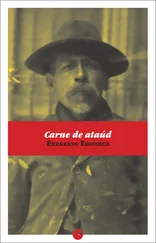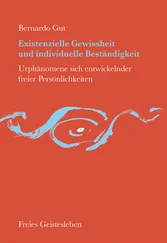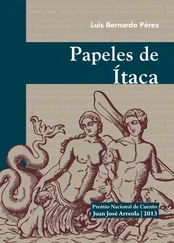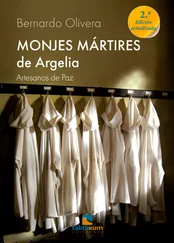Bernardo Atxaga - Obabakoak
Здесь есть возможность читать онлайн «Bernardo Atxaga - Obabakoak» весь текст электронной книги совершенно бесплатно (целиком полную версию без сокращений). В некоторых случаях можно слушать аудио, скачать через торрент в формате fb2 и присутствует краткое содержание. Год выпуска: 2010, Издательство: Graywolf Press, Жанр: Современная проза, на английском языке. Описание произведения, (предисловие) а так же отзывы посетителей доступны на портале библиотеки ЛибКат.
- Название:Obabakoak
- Автор:
- Издательство:Graywolf Press
- Жанр:
- Год:2010
- ISBN:нет данных
- Рейтинг книги:3 / 5. Голосов: 1
-
Избранное:Добавить в избранное
- Отзывы:
-
Ваша оценка:
- 60
- 1
- 2
- 3
- 4
- 5
Obabakoak: краткое содержание, описание и аннотация
Предлагаем к чтению аннотацию, описание, краткое содержание или предисловие (зависит от того, что написал сам автор книги «Obabakoak»). Если вы не нашли необходимую информацию о книге — напишите в комментариях, мы постараемся отыскать её.
Obabakoak
The Observer
Obabakoak — читать онлайн бесплатно полную книгу (весь текст) целиком
Ниже представлен текст книги, разбитый по страницам. Система сохранения места последней прочитанной страницы, позволяет с удобством читать онлайн бесплатно книгу «Obabakoak», без необходимости каждый раз заново искать на чём Вы остановились. Поставьте закладку, и сможете в любой момент перейти на страницу, на которой закончили чтение.
Интервал:
Закладка:
“He must have gone for a swim,” he thought, looking out at the emerald sea. But only red fish were swimming there.
“He must have drowned,” he decided, lying down again on the sand. He felt the heat of the sun on his face, especially on his eyelids.
“Klaus, get up this instant!” he heard a voice say shortly afterward.
On the very spot where the waiter had stood there was now a child. He was wearing yellow trunks and was smiling scornfully at him.
“What are you doing out there, Alexander?” Klaus asked, averting his eyes from that smile.
Just then he heard a strange whistling noise.
“Who’s that whistling?” he asked. But he got no reply.
No sooner had he asked the question than he heard another whistle just as loud as the previous one and shortly afterward a third whistle.
“Klaus, get up this instant! Get up, you idiot!” shouted Alexander, giving him a kick in the ribs.
“Why are you kicking me, Alexander? If you do that, I’ll throw you in the water and you’ll drown. Just like that day we went on the trip up the River Elbe!” whined Klaus.
“I hate you, Klaus!”
“It was your fault, Alexander! I pushed you in because you kept kicking me!” Crying openly now, Klaus turned his head away. He didn’t want to hear what his little brother was saying.
As soon as he turned his head he saw them. Three very large green turtles. They were sitting on a rock whistling and stretching out their necks.
“So it was the turtles. I never expected them to make a noise like that,” thought Klaus. It bothered him to know that. He hadn’t reckoned on finding anything unpleasant on the island.
One of the turtles fell silent.
“The big one is bound to stop now too,” he thought. And the big turtle also stopped whistling. Only the one on the highest part of the rock continued.
That must be the oldest one,” he remarked.
“Shut up, you old devil!”
It didn’t obey him at once, but then, finally, it too fell silent. Klaus sighed, relieved, and scoured the beach for his younger brother. But the beach was empty.
“You were right to go back inside, Alexander. You’re better off in there. Every time you come out, we quarrel and that’s a terrible thing to happen between brothers,” he said.
From on high the sun dominated the sky and once the whistling of the turtles had ceased, the sound of the waves seemed very pleasant to him. It rocked him ever more gently, growing ever farther and farther away …
Margarete and Heinrich, twins
LET US SUPPOSE that what is about to begin is a story of some ten to twelve pages in length, and let us make that hypothesis more specific by saying that the protagonists of the story will be the characters whose names appear in the title, that is, Margarete and Heinrich, twins, who at the time of the events described — the autumn of 1934—were living apart in two different cities in Germany.
We used the third-person plural of the past imperfect, “they were living,” to apply to both brother and sister and to a whole autumn. However, we are obliged to use this second paragraph to clarify the previous statement since the death of one of them — of Margarete, to be exact — is one of the basic premises of the hypothesis. Let us add, then, that Margarete died at a train station right at the beginning of the aforementioned autumn and that she disappeared overnight, suddenly, like one of those seabirds who, on being mortally wounded, abandon the air and plunge into the sea forever.
But death, even a death of the kind we are dealing with now, cannot remain secret; if it is to be complete, it requires someone to record it and to make it known. Let us add, then, a few more details to those already set out: first, those relating to the letter sent to Heinrich by a Bavarian judge; second, those relating to the circumstances surrounding the reading of the said letter. And let us do so in the verbal forms that, although inappropriate for a hypothetical style, are much more comfortable to use.
The Bavarian judge said:
“It is my duty to inform you that your sister Margarete Wetzel died at 00.15 on 22 September. It would seem that she fell beneath the wheels of a train at that moment entering the station. We will write to you again as soon as our investigations are completed. We do not exclude the possibility that it may have been a murder.”
Circumstances and relevant facts.
Firstly, the port of Hamburg, where Heinrich was working a crane on quay number eight and, more specifically, that crane’s cabin of unbreakable glass from which he could easily see the whole deck of the ship he was loading. As regards weather conditions, a rainy afternoon, the second day of October. In respect of the ineffable, an oversight, for Heinrich — who had given no importance to an apparently official letter — did not think to read it until several days after putting it into one of his overall pockets.
Having reached this point, we crave the reader’s indulgence — as the old balladeers used to say — and ask you to allow the writer to forget all about the original hypothesis. Because otherwise the use of formulae, such as those used up until now, would prove unavoidable and would serve only to encumber the narrative flow. Let us, then, continue with the story, telling it as if it had really happened.
As soon as he had read the letter, Heinrich threw his head back so that it touched the steel plate at the back of the cabin. He felt his heart begin to beat wildly, frenetically pumping blood, as if wanting to spread throughout his whole body the blow it had felt on reading the judge’s letter. Very soon the pain reached his knees, his lungs, his guts.
He lay exhausted and absent from the world about him, oblivious to the hard rain falling at that moment and to the other workers shouting up to him from the quay. When, at last, he emerged from his abstraction, he heard the scream of a seagull and, instinctively, began to follow its flight with his eyes. The seagull descended from the clouds and alighted on the prow of the ship he was loading. There he read the name: Three sisters.
Heinrich’s eyes lost sight of the bird and remained fixed and amazed on the twelve letters making up the ship’s name.
“I only had one sister,” he thought. The pang he felt at what seemed a cruel joke on the part of life cleared his head completely. He returned to the world.
He lowered his gaze to the quay. His fellow workers were gesticulating furiously, signaling to him that the cargo was secured. Why was he waiting before hoisting it up? Couldn’t he see they were getting soaked? He wiped the glass of the cabin clean and did what they asked of him without thinking about it, acting out of pure inertia. Immediately afterward he climbed down the crane ladder and went over to them.
“I have to go home,” he told them in a muffled voice, adding, “I think I may be ill.”
But the ten men on the quay had already noticed the letter sticking out of one of his trouser pockets and they didn’t believe him.
“Don’t worry, Heinrich. All women are the same. You’ll find another one,” remarked the foreman in a mocking tone and all the others laughed.
Those apparently consoling words were not only the fruit of a crude misunderstanding, they were also — and above all — a scornful allusion to Heinrich’s lack of masculinity. The workers on the quay didn’t like this circumspect, well-mannered young man who maneuvered the crane up there, above them. He wasn’t the right sort of person to work in a port. They needed real men in the port, the sort who went out afterward and spent all their money in the St. Pauli brothels.
He ignored the provocative remark, left the quay, and, after changing his clothes, crossed an iron walkway onto the main road. He was not thinking about anything. He simply made the screams of the seagulls flying overhead echoes of his own inner scream.
Читать дальшеИнтервал:
Закладка:
Похожие книги на «Obabakoak»
Представляем Вашему вниманию похожие книги на «Obabakoak» списком для выбора. Мы отобрали схожую по названию и смыслу литературу в надежде предоставить читателям больше вариантов отыскать новые, интересные, ещё непрочитанные произведения.
Обсуждение, отзывы о книге «Obabakoak» и просто собственные мнения читателей. Оставьте ваши комментарии, напишите, что Вы думаете о произведении, его смысле или главных героях. Укажите что конкретно понравилось, а что нет, и почему Вы так считаете.











